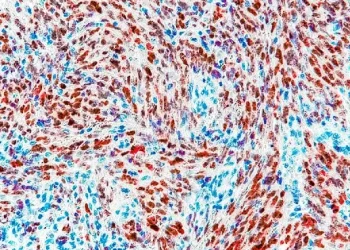AI Screening Tool Reduces Opioid Readmissions, Matches Physician Performance
A new AI-powered screening tool, tested in a real-world clinical setting, has matched physician performance in identifying opioid use disorder (OUD) and reduced hospital readmissions by nearly half.
This NIH-funded innovation could transform addiction care and hospital workflows nationwide.
AI Enhances Addiction Care at University Hospital in Madison
In a recent clinical trial at the University of Wisconsin School of Medicine and Public Health, researchers evaluated an AI tool designed to screen hospitalized adults for signs of opioid use disorder.
Conducted between March 2021 and October 2023, the trial compared outcomes between traditional physician-led consultations and an AI-assisted approach.
The findings, published in Nature Medicine, revealed a significant drop in 30-day hospital readmissions—patients identified using AI screening had 47% lower odds of returning within a month.
With over 50,000 patient records reviewed, the study showed AI can play a critical role in detecting OUD and supporting timely intervention.
How the AI Screening Tool Works
Built to analyze vast amounts of patient data in real-time, the AI tool reviewed electronic health records (EHRs), identifying patterns in clinical notes, history, and diagnostics.
When it detected indicators of opioid use disorder, it issued alerts prompting hospital staff to consult an addiction specialist and monitor withdrawal symptoms.
The tool was embedded into standard hospital workflows, alerting clinicians during routine chart reviews. Importantly, it required no additional manual input from providers, which helped minimize disruption and potential resistance.
Results: Reducing Readmissions and Boosting Efficiency
The AI screener’s performance matched that of healthcare providers, ensuring patient care quality remained high. At the same time, the tool proved more scalable and consistent in prompting timely referrals.
Comparison of Outcomes With and Without AI Screening (March–October 2023)
| Outcome | Without AI Screening | With AI Screening |
|---|---|---|
| Addiction Consult Rate | 1.35% | 1.51% |
| 30-Day Readmission Rate | 14% | 8% |
| Estimated Readmissions Avoided | — | 16 |
| Estimated Cost Savings | — | $108,800 |
These outcomes held steady across different age groups, insurance statuses, and comorbidities, reinforcing the tool’s broad applicability.
Why This Matters: Addressing Gaps in OUD Screening
Despite the growing burden of opioid misuse, many hospitals lack consistent screening protocols. Patients with opioid use disorder often leave without seeing an addiction specialist, which is associated with a tenfold increase in overdose risk. This tool offers a scalable solution to bridge that gap.
-
Scalable impact: AI screening operates continuously and uniformly.
-
Reduced burden: Minimizes clinician workload during high-demand periods.
Dr. Nora Volkow, Director of the National Institute on Drug Abuse (NIDA), emphasized the tool’s value:
“AI has the potential to strengthen addiction treatment while optimizing hospital workflow and reducing healthcare costs.”
Addressing Challenges in Implementation
While promising, the system is not without concerns. Alert fatigue remains a challenge, as repeated prompts can desensitize providers. Additionally, validation across diverse hospital systems is still needed to confirm effectiveness in other contexts.
Lead author Dr. Majid Afshar noted,
“Many AI models remain untested in real-world conditions. Our study shows what’s possible when AI is fully embedded in hospital systems.”
Future studies will refine the AI model, optimize alert frequency, and assess long-term impacts on health outcomes and cost efficiency.
A Strategic Step Forward in Healthcare Innovation
The opioid crisis continues to strain hospital systems. Between 2022 and 2023, emergency visits related to substance use rose by nearly 6%, totaling 7.6 million cases. With opioids ranking just behind alcohol as the leading cause, early screening is vital.
This NIH-supported AI tool demonstrates how smart integration of technology into existing systems can yield measurable, cost-effective improvements without sacrificing care quality.
Further Reading and Resources
This study marks a significant leap toward AI-enhanced healthcare, particularly in addiction medicine. As hospitals nationwide seek to improve outcomes and manage costs, solutions like this will be increasingly vital.
To learn more about the study or access addiction treatment support:
-
Visit FindTreatment.gov
-
Call or text 988 for 24/7 support
-
Explore the NIH’s latest AI initiatives at nida.nih.gov
For updates on emerging medical technologies, follow our health innovation section.
Sources: National Institutes of Health.









